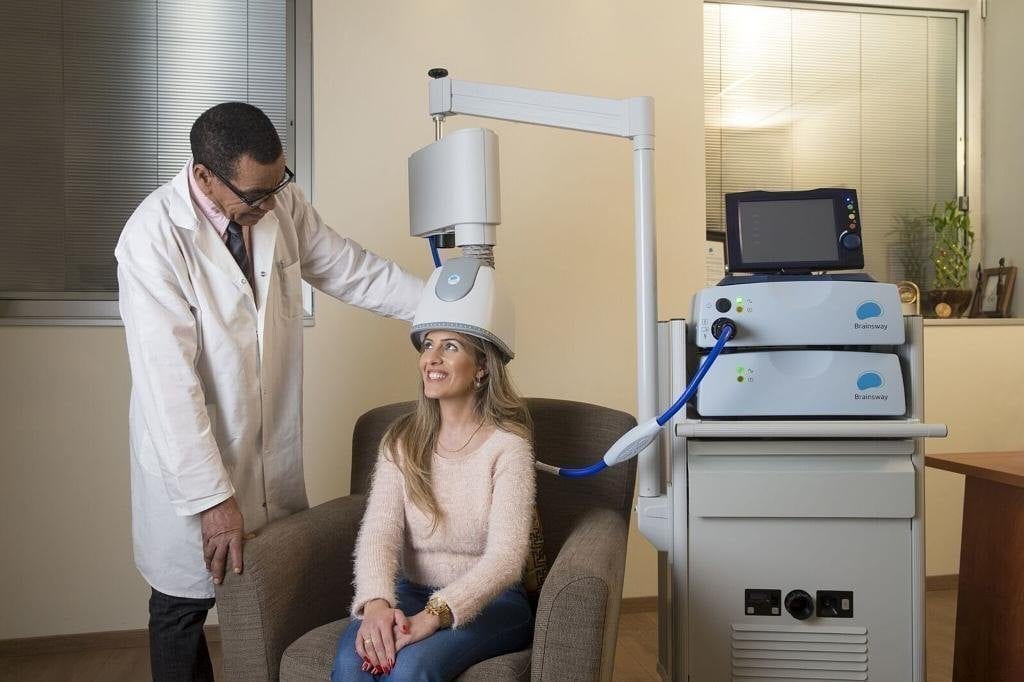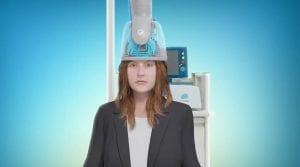The brain is one of the least understood organs in the human body. Its intricate neural connections and functions make it extremely hard to study and predict. Within the last few decades, neuroscientists and psychiatrists have made revolutionary strides towards a better understanding of the human brain. Notably, BrainsWay has developed an innovative technology that combines what is known about the regions of the brain associated with depression and OCD with a uniquely designed treatment. This technology is Deep TMS.
Transcranial Magnetic Stimulation (TMS) — uses a magnetic field to stimulate neurons. BrainsWay developed a unique version of TMS called Deep TMS — characterized by a helmet containing patented “H-Coils.” BrainsWay’s H-Coils are highly effective in stimulating the desired brain regions because they target a broader and deeper area of the brain than traditional TMS while maintaining safe levels of stimulation.

Deep TMS therapy is revolutionizing the field of mental health. Other treatment options for Major Depressive Disorder (MDD) and Obsessive Compulsive Disorder (OCD) include medications and therapy, but unfortunately roughly 30% of people with depression are resistant to medications while many others experience unbearable side effects. The search for relief brings people who suffer from MDD and OCD to explore Deep TMS therapy, and it is helping them turn their lives around.
Deep TMS is a noninvasive treatment with no systemic side effects and clinically proven results. More than 1 in 2 patients with treatment-resistant depression achieved full remission in real clinical trials, leading to an FDA clearance for Deep TMS to treat depression. More recently clinical data of over 1,300 patients in real practice settings has shown compelling results. Among patients who completed at least 30 sessions, approximately 4 in 5 achieved response and approximately 2 in 3 achieved remission.
Patients treated with Deep TMS for OCD also achieved a response; 1 in 3 experienced over 30% reduction of symptoms after failing to respond to SSRIs or psychotherapy.

Upon arrival at the clinic, patients are seated in a comfortable chair and fitted with the helmet. As the treatment proceeds, they will hear knocking sounds and feel a slight tapping on the head.
Each session lasts 20 minutes and patients can drive immediately after the session. No hospitalization or anesthesia is necessary and treatment sessions fit into daily routines. For depression treatment, most patients attend five sessions per week for four weeks, and then biweekly for up to 12 weeks as maintenance. For OCD, patients attend five sessions per week for six weeks. People often start feeling relief after only a few weeks, making Deep TMS a life-changing treatment option for people with MDD and OCD.